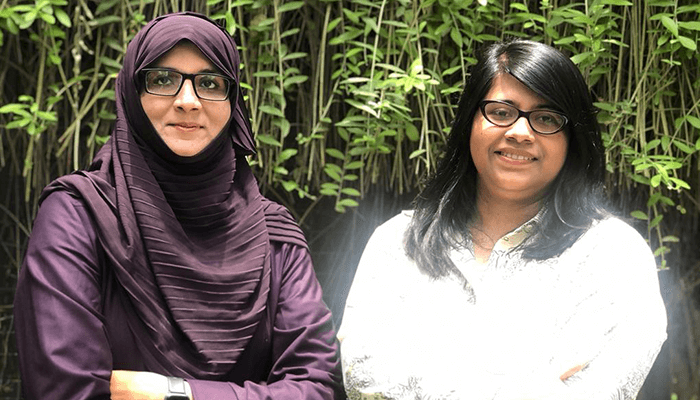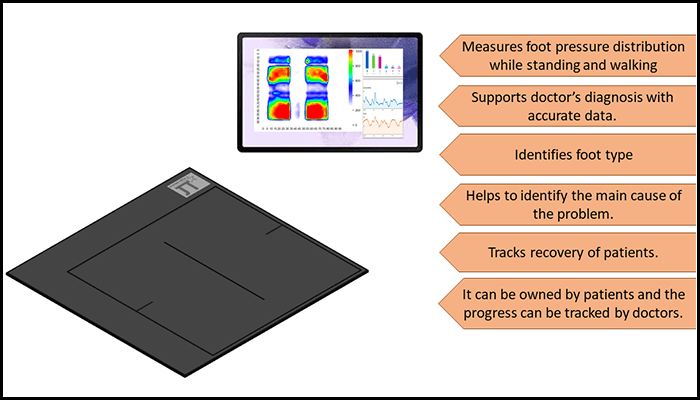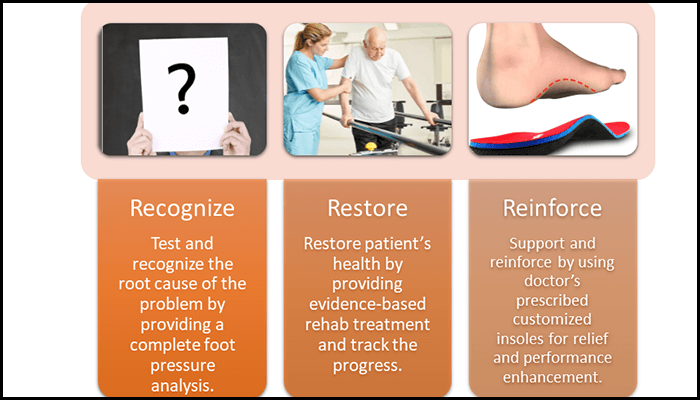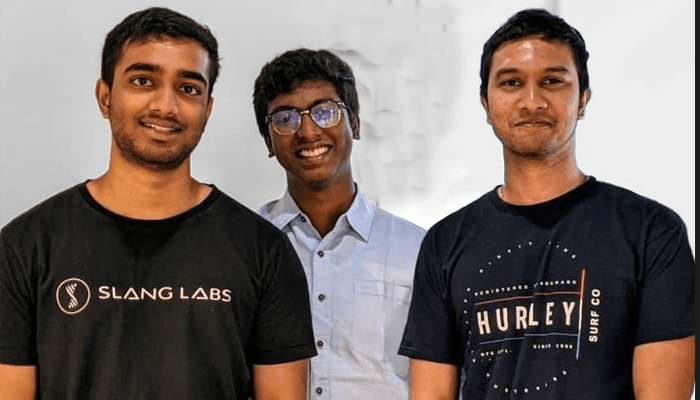There’s many a startup idea brewing and taking shape among IIITH students. From a physiotherapist’s dream equipment to a web3 product launchpad, here’s a look at those from this year’s graduating batch who have shunned traditional employment to pursue entrepreneurship instead.
Who: Anis Fatema (PhD), Deeksha Devendra (MS by Research)

What: PhysioFLEPS – A flexible podiatry system for physiotherapy, aka a pressure sensor mat for feet.
How: When Anis Fatema began researching on sensors as part of her PhD, it led to the idea of a pressure sensor mat that could be used on chairs – one that could recognise bad posture and send out appropriate alerts to the person slumped in it. While working on the design, she realised that the applications of such a flexible and smart mat were many, ranging from Orthopaedics to sports rehabilitation where an improvement in orthopaedic functionality can be quantifiably measured.
It was when the low-cost, patent-pending breakthrough received widespread media coverage that Deeksha Devendra, final year MS by Research student was spurred into action. Bitten by the entrepreneurial bug “since childhood, when I used to role play as a CEO”, she decided to turn the idea into a product. It only helped that the research team was inundated with calls not only from physiotherapists who showed keen interest in the mat, but also from others such as a mattress company that wanted to incorporate it into a ‘smart mattress’. “There were also those who thought they were talking to the HR representative of a ‘company’ manufacturing the pressure mat!,” exclaims Anis.


With Deeksha and Anis teaming up, PiStar was officially incorporated in May 2021. As a national level swimmer herself, Deeksha understands the implications of a pressure mat from a sporting perspective. “Sportspersons often report stresses in their limbs that cannot be quantified. Something like this will be hugely beneficial in addressing issues at an early stage,” she says. Currently focused on capturing pressure exerted by feet, the mat which is connected to a mobile device via an app records readings from physiotherapy exercises and displays them in a graphic format. With AI integrated into it, physiotherapists will not only be able to monitor patients’ progress but also predict the improvement in their mobility after a certain period.
Funding: The startup has been incubated at CIE and received a MeitY grant of 7 lakhs under the Technology Incubation and Development of Entrepreneurs (TIDE) 2.0 scheme which provides “financial and technical support to incubators engaged in supporting ICT startups primarily engaged in using emerging technologies such as IoT, AI, Block-chain, Robotics etc. in pre-identified areas of societal relevance”.
Who: Arjun Andra, Siddarth Vijay, Srinivas Kota (BTech)

What: NeoCap, a Web 3.0 product launchpad
How: Innovation and entrepreneurship run deep in the Andra family. With his father in the venture capital industry and an older brother running a crypto fund, dinner time conversations kindled an early interest in decentralized technologies in a young Arjun.
From his second year of college, Arjun began attending Web 3.0 conferences and interacting with various companies connected to him through his brother and father. Luckily for him, his close friends Siddarth Vijay and Srinivas Kota shared the same passion and teamed up to create a product studio to work on Web 3.0 projects that were well funded but lacked strong tech resources. “We’ve worked on projects in supply-chain management, decentralized exchanges (DEXs) and other custom layer 1 blockchain solutions, but our interest currently lies in creating an alternate investment infrastructure to open up the Web 2.0 ecosystem to Web 3.0 investors”, claims Arjun.
Passionate about asset tokenization, the trio speak at length about how any asset, from real estate to private equity, can be converted to their tokenized counterparts on the blockchain. “A web3 marketplace makes the asset class much more accessible and hence provides more investment opportunities for Web 3.0 players,” elaborates Arjun, adding that improved liquidity through secondaries, increased flexibility and automation through tokenization as well as the reduced operational cost of fractional ownership are all compelling reasons to pursue this.
The team is also actively engaged in building tools for the Web 3.0 ecosystem, and is always on the lookout for bright and motivated individuals to join them. For this, the three cofounders are on an evangelizing spree to create more awareness about Web 3.0 especially among IIITH students. “One way of doing this is to match students with well funded global projects in order to motivate them,” says Arjun. Acknowledging the presence of high calibre software development skills among the campus candidates, Arjun says that their goal is to create world-class engineering teams out of IIITH. They are also equally keen on enhancing the entrepreneurial spirit at IIITH. “There’s still more of a focus on getting a job and the best pay package. But students need to be inspired that Computer Science (CS) isn’t just about getting a paycheck, but turning your ideas into reality when you think about it. That’s the freedom CS gives that not many other majors do,” he muses.
Funding: Currently operating in stealth mode, the venture was kicked off with an undisclosed funding round by friends and family. They are now in the process of raising funds via a seed round which will close within the next few months. While an informal rollout has taken place, an official launch is around the corner after which the founders plan to put in place a marketing team to secure more clientele.


